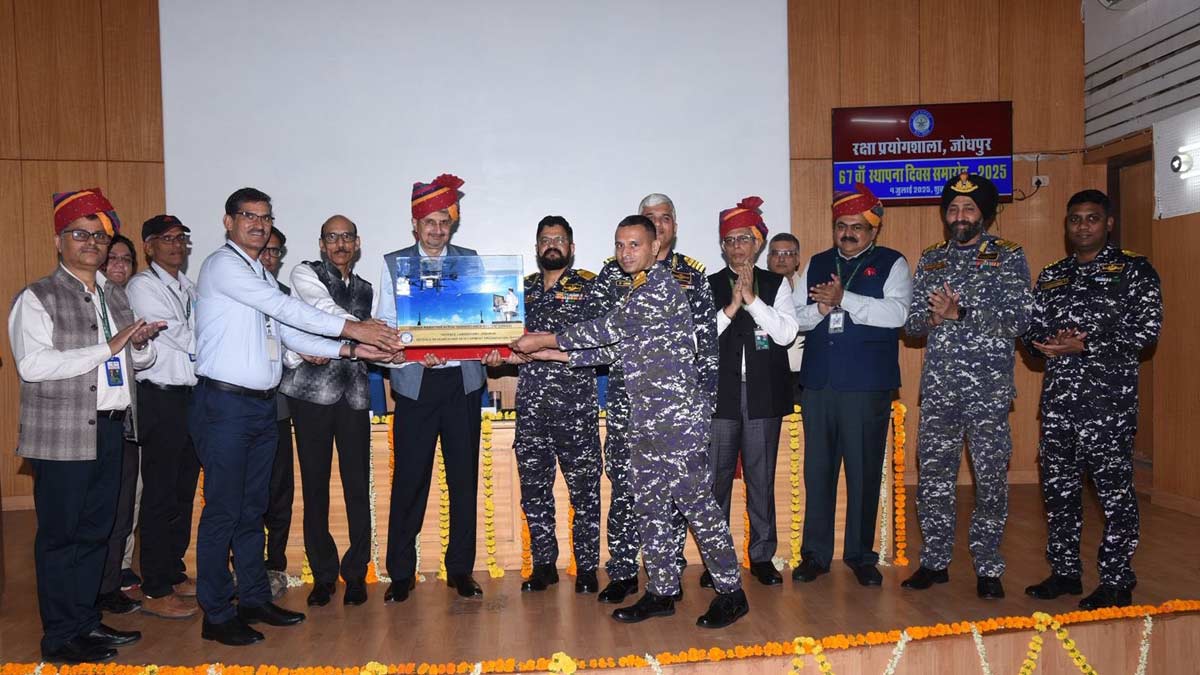Indian Navy gets 6 new cutting-edge tech from DRDO. All you need to know

The Defence Research and Development Organisation (DRDO), on Tuesday, announced that it has handed over six strategic, indigenously designed and developed products, that meet the Navy Staff Qualitative Requirements (NSQR), to the Indian Navy.
NSQR refers to the essential capabilities and functional attributes that an equipment, system, or platform must fulfill to meet the operational needs of the Indian Navy.
ALSO READ: LCA Tejas Mk1A production update: HAL gets second GE-404 engine, more to come soon
Taking to social media, DRDO said it handed over Gamma Radiation Aerial Surveillance System (GRASS), Environmental Surveillance Vehicle (ESV), Vehicle Radiological Contamination Monitoring System (VRCMS), Underwater Gamma Radiation Monitoring System (UGRMS), Dirt Extractor and Cross Contamination Monitor (DECCOM), and Organ Radioactivity Detection System (ORDS) to the Navy.
Gamma Radiation Aerial Surveillance System (GRASS)
GRASS is aimed at offering aerial radiological surveillance of nuclear-contaminated areas using a lightweight gamma radiation detection module, suitable for integration with unmanned aerial vehicles.
Environmental Surveillance Vehicle (ESV)
Developed by DRDO's Vehicles Research and Development Establishment (VRDE), ESV is designed for rapid detection, identification, and monitoring of nuclear, biological, and chemical (NBC) contamination in potentially hazardous environments.
Vehicle Radiological Contamination Monitoring System (VRCMS)
This system has been designed to detect, monitor, and survey radiological contamination on vehicles operating in nuclear-contaminated or radiologically hazardous environments.
Underwater Gamma Radiation Monitoring System (UGRMS)
UGRMS measures gamma radiation levels underwater and transmits the data to a base station. The system will be useful in nuclear disaster management, radiological emergency response, surveillance in ports or coastal zones, and safety assurance near nuclear installations or during naval operations.
Dirt Extractor and Cross Contamination Monitor (DECCOM)
Designed for use in environments where there is a risk of radiological, biological, or chemical contamination, this system is expected to help in extracting and analyzing contaminants from footwear; the system minimizes the risk of transferring dangerous substances between zones.
Organ Radioactivity Detection System (ORDS)
ORDS is intended for the detection and monitoring of radioactivity levels in human organs in scenarios involving nuclear or radiological exposure.
Secretary, DDR&D and Chairman, DRDO, handed over these products to Admiral Sriram Amur, ACNS (SSP), Naval HQ, at a special ceremony held at the defence laboratory in Jodhpur.
Defence